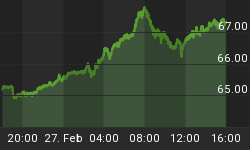A perfect sign of the times is the unexpected success of a 700-page economics text called Capital in the 21st Century by French college professor Thomas Piketty. As of April 30, it is the best-selling book in the world and is generating the kind of controversy that one would expect for what is reportedly an updating of Marxist theory for the Internet age.
I haven't read it, so can't comment on the book itself. But the subject is a good springboard for a look at the actual tragedy of Karl Marx, which is that his ideas got tried out in the real world.
There are two parts to Marx's main theory. One is a critique of capitalism as a system in which the guys who own factories and hire workers coalesce into an international class with a very specific set of goals: to drive workers' wages down to just enough to keep them alive, to accumulate as much wealth as possible and to use that wealth to take over the political as well as the economic system. Eventually this process reaches a point where the 1% own pretty much everything, the 99% own virtually nothing, and the latter finally get fed up and take it all back for themselves. You get either a violent revolution or a political process that results in massive wealth taxes and comprehensive social programs to redistribute the capitalists' ill-gotten gains.
So far, so good. This pretty much describes the period since 1971 when the world stopped basing their currencies on gold and began pouring trillions of newly-created, totally-unbacked dollars into a banking system that evolved from supporting real wealth creation to basically running everything for its own benefit. Bankers and their corporate and political allies accumulated vast fortunes while the rest of the world was pushed ever-further down the economic ladder. And now comes the revolution, with rising taxes and massive new entitlements in the developed world (see Obamacare in the US and a doubling of the sales tax in Japan) and violent revolutions in much of the developing world.
So Marx got this right and would be seen as a prophet if he'd stopped there. Unfortunately, he went on to predict that the revolt of the 99% would result in a "dictatorship of the proletariat" in which workers of the world abolished private property ran things so wisely that government would just fade away.
This is of course crazy, and when it was tried in the 20th century it failed with catastrophic consequences for the Soviet Union, China, and a long list of smaller but no less tragic countries. In case the reasons for this failure aren't obvious, here are the two big ones:
1) You can't eliminate ownership of property. If it exists, someone has to own it, and if private individuals don't, then government does. Governments are run by people and people are infinitely corruptible, so giving politicians and bureaucrats the infinite power of total ownership necessarily, always and everywhere, produces dictatorship. You just end up replacing rapacious but creative international bankers with brutal and uncreative political hacks.
2) This economic vision is static. It says that today's factories represent society's "wealth" and that running them right and distributing the proceeds equitably produces a happy world. But a modern economy is dynamic. Today's factories are constantly being surpassed by tomorrow's, as entrepreneurs come up with better ways of doing things. This creative destruction is the real source of wealth and the reason that capitalist societies progress -- in terms of product quality and cost, if not necessarily in good sense and compassion. Compare today to 1950 and, well, there's no comparison. One would have to be insane to go back to a time before smart phones, stem cell therapies and the Internet.
To freeze progress by putting bureaucrats in charge of everything is, in effect, telling creative individuals not to bother working 16 hours a day and taking big risks to revolutionize biotech or microchips or solar power because even if they can get their ideas past the people who would be made obsolete, they (the inventors) won't be rewarded for their efforts in any tangible way. So, as Ayn Rand explained in Atlas Shrugged, the creative class goes on strike and society stagnates.
The result: brutal dictatorships and the eventual dismissal of the Marxist ideas on which those societies are founded.
Which is too bad, because Marx's critique of the modern world was right-on, and the first half of his scenario is playing out just as he predicted. Now the challenge is devising a monetary/financial reset that brings the 99% back into the game without producing a stagnant dictatorship. It will help if we understand why it's happening.















